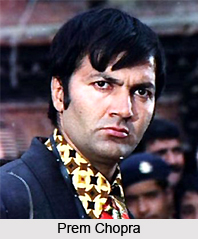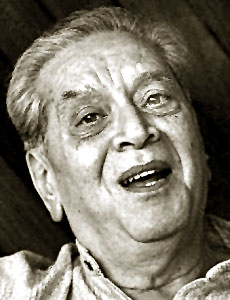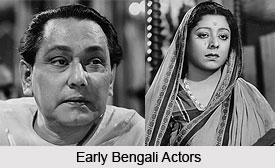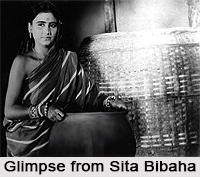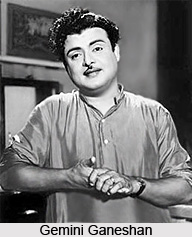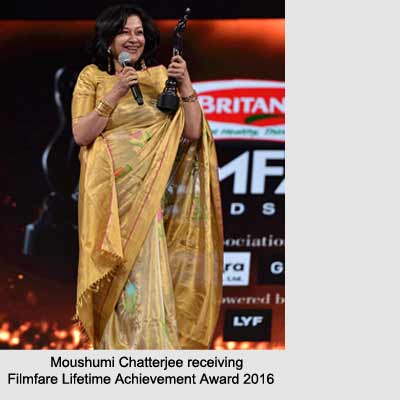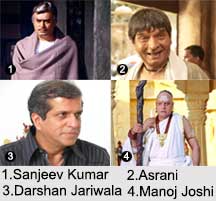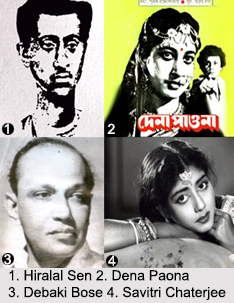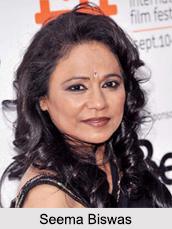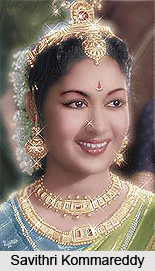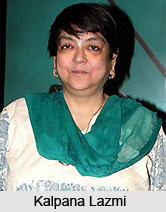 Kalpana Lazmi, born in 1954, is an Indian film director, producer and writer, best known for her superb films like Rudaali, Chingaari and so on. Kalpana Lazmi is an independent art film director who prefers to work on realistic, low budget films which are specifically known as parallel cinema. Her films attract huge audiences and are often marked as rare and unique woman-oriented films.
Kalpana Lazmi, born in 1954, is an Indian film director, producer and writer, best known for her superb films like Rudaali, Chingaari and so on. Kalpana Lazmi is an independent art film director who prefers to work on realistic, low budget films which are specifically known as parallel cinema. Her films attract huge audiences and are often marked as rare and unique woman-oriented films.
Kalpana Lazmi is the daughter of painter Lalita Lajmi and niece of filmmaker Guru Dutt thus; film making is there in her blood. She is one of those directors who swayed the domain of Indian cinema with her intelligent features of film making and her directorial ventures. Each of her film contains its own unique style, with detailed thematic crux, and unique back-lighting. However, her films contain substance as well as style-Lajmi has dealt with a wide variety of topics, from the classic Indian contemporary female issues to political thrillers to socio economic black outs.
Career of Kalpana Lazmi
Kalpana Lazmi debuted as a director with the documentary film D.G. Movie Pioneer in 1978 and further directed more documentaries like A Work Study in Tea Plucking (1979) and Along the Brahmaputra (1981). She debuted as a film director in 1986 with Ek Pal (one minute) featuring Shabana Azmi and Naseeruddin Shah. She was the producer of the film, did the scriptwriting and had written the screenplay along with Gulzar. Kalpana Lazmi was highly appreciated for her Hindi directorial debut.
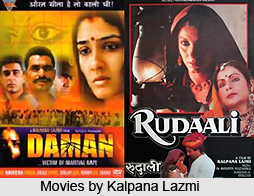 Kalpana Lazmi then took a break from directing movies and went to direct her first television serial Lohit Kinare (1988) that starred the talented actress Tanvi Azmi. She made her comeback to cinema in 1993 with the critically acclaimed film Rudaali starring Dimple Kapadia, Raakhee Gulzar and Amjad Khan. Dimple Kapadia won the National Film Award for Best Actress for her performance and Kalpana Lazmi also won accolades for directing the film. Her next film Darmiyan (1997) was directed and produced by herself and the film casts were Kirron Kher and Raveena Tandon in pivotal roles. Daman: A Victim of Marital Violence was the next venture of Kalpana Lazmi in 2001. The film was distributed by the Government of India and was highly commended by critics. It was the second time that an actress won the National Film Award for Best Actress under Kalpana Lazmi`s directorial guidance. Raveena Tandon considers this film to be the turning point in her career and Kalpana Lazmi was credited as being the able director to exploit the hidden talent in her. Kalpana Lazmi`s next film, Kyon? (2003) unfortunately did not receive as fame as the others while her last release Chingaari (2006) starring Sushmita Sen was well received.
Kalpana Lazmi then took a break from directing movies and went to direct her first television serial Lohit Kinare (1988) that starred the talented actress Tanvi Azmi. She made her comeback to cinema in 1993 with the critically acclaimed film Rudaali starring Dimple Kapadia, Raakhee Gulzar and Amjad Khan. Dimple Kapadia won the National Film Award for Best Actress for her performance and Kalpana Lazmi also won accolades for directing the film. Her next film Darmiyan (1997) was directed and produced by herself and the film casts were Kirron Kher and Raveena Tandon in pivotal roles. Daman: A Victim of Marital Violence was the next venture of Kalpana Lazmi in 2001. The film was distributed by the Government of India and was highly commended by critics. It was the second time that an actress won the National Film Award for Best Actress under Kalpana Lazmi`s directorial guidance. Raveena Tandon considers this film to be the turning point in her career and Kalpana Lazmi was credited as being the able director to exploit the hidden talent in her. Kalpana Lazmi`s next film, Kyon? (2003) unfortunately did not receive as fame as the others while her last release Chingaari (2006) starring Sushmita Sen was well received.
Art till a certain amount of time was strictly confined to paintings and writings in India, till the time when people got introduced to the silver screen, in 1913. As the screen remained mute for sometime, so was the audience towards this form of art. But later, as the sound was introduced in the screen, the makers realized the immense power of the screen. It was not late that the medium was accepted as a popular platform to realize one`s potentials and voice the societal concerns. The cinematic themes are different; the characters, each of a different timbre and yet in his film`s she reigns an imperious presence. She is indeed Salman Rushdie of the celluloid. Never for a moment is one allowed to forget the mind behind every nuance, every inflection, and every emotion. One is constantly reminded that it is neither the plot nor the character that is important, but how Lajmi conceives one to be.
Filmography of Kalpana Lazmi
1978 D.G. Movie Pioneer (Director)
1979 A Work Study in Tea Plucking (Director)
1981 Along the Brahmaputra (Director)
1986 Ek Pal (Director, Producer, Writer)
1988 Lohit Kinare (Director)
1993 Rudaali (Director, writer)
1997 Darmiyan (Director, producer)
2001 Daman: A Victim of Marital Violence (Director, Writer)
2003 Kyon? (Director, producer)
2006 Chingaari








